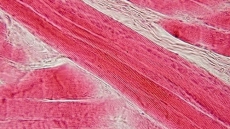Scientists have discovered a previously unknown mechanism through which the brain produces new nerve cells even after a stroke.
Following an induced stroke in mice, brain support cells called astrocytes started to form nerve cells in the injured part of the brain.
Using genetic methods to map the fate of the cells, the scientists demonstrated that astrocytes in the area formed immature nerve cells which then developed into mature nerve cells.
"This is the first time that astrocytes have been shown to have the capacity to start a process that leads to the generation of new nerve cells after a stroke," said Zaal Kokaia, professor of experimental medical research at the Lund University in Sweden.
A stroke is caused by a blood clot blocking a blood vessel in the brain, which leads to an interruption of blood flow and therefore a shortage of oxygen.
Many nerve cells die, resulting in motor, sensory and cognitive problems.
During the study, scientists also identified the signalling mechanism that regulates the conversion of the astrocytes to nerve cells.
In a healthy brain, this signalling mechanism is active and inhibits the conversion, and, consequently, the astrocytes do not generate nerve cells.
Following a stroke, the signalling mechanism is suppressed and astrocytes start the process of generating new cells.
"Interestingly, even when we blocked the signalling mechanism in mice not subjected to a stroke, the astrocytes formed new nerve cells," Kokaia added.
"One of the major tasks now is to explore whether astrocytes are also converted to neurons in the human brain following damage or disease," said Olle Lindvall, senior professor of neurology at the Karolinska Institute in Sweden.
The findings were published in the journal Science.





